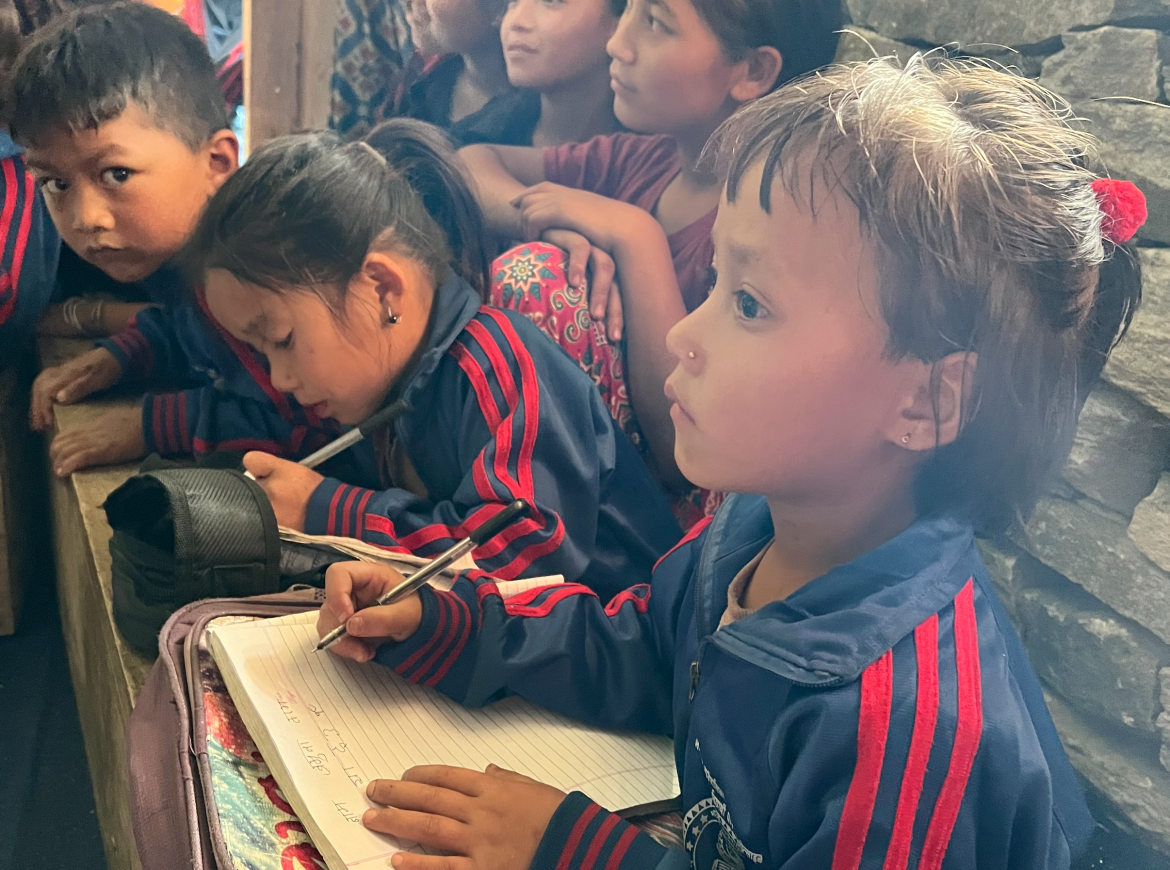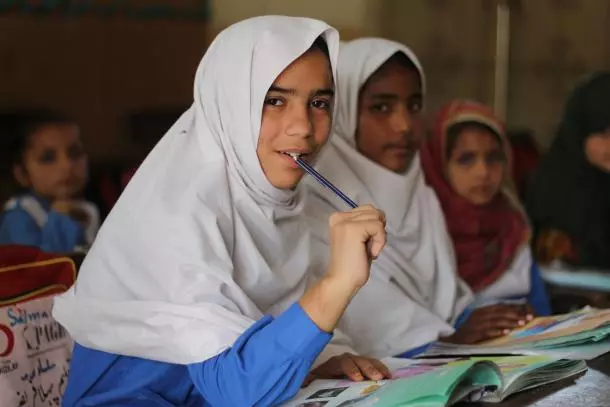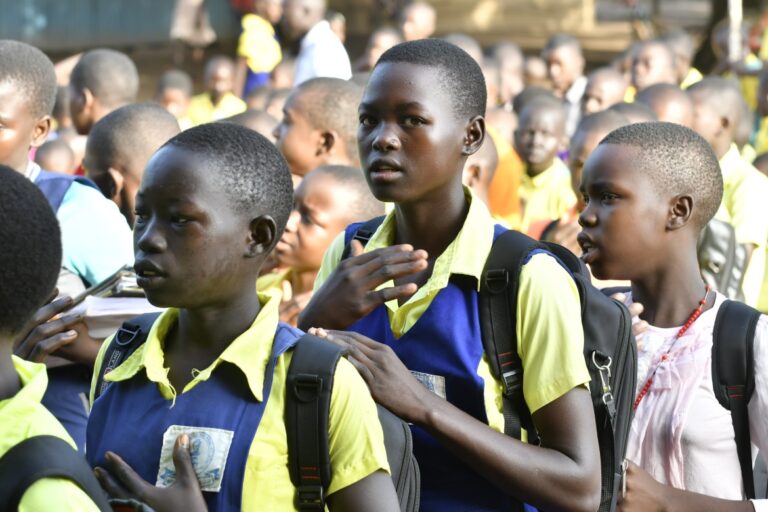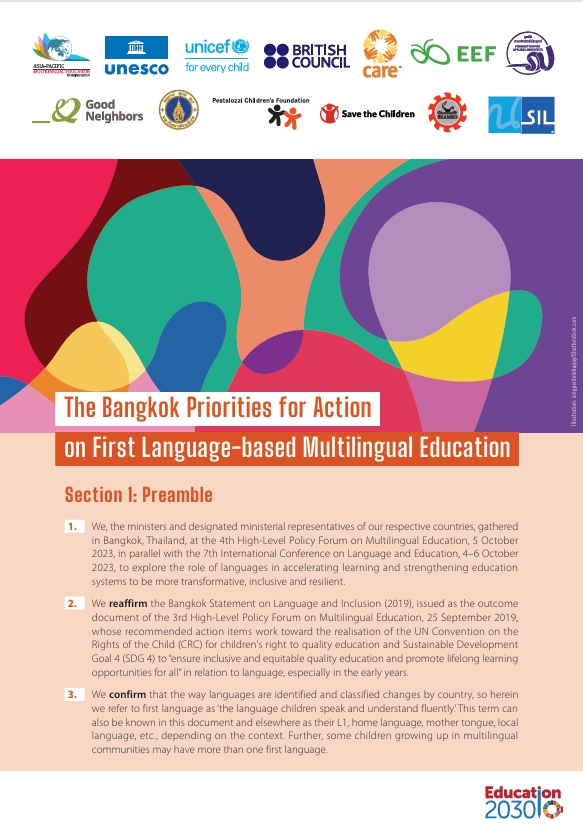Literacy is essential in today’s world, where having foundational skills in reading and writing are a gateway to accessing various forms of information, knowledge and opportunities to thrive in any society. Alarmingly, there are more than 700 million illiterate adults, and this number is at risk of increasing due to low literacy levels in primary schools.
At present, 70% of children in low- and middle-income countries globally are unable to read and understand a simple text by the age of 10. This statistic, commonly referred to as ‘learning poverty,’ suggests that future generations are at real risk of not acquiring knowledge from written content throughout their education and, thus not being able to acquire one of the basic skills to function in their community.

This barrier to becoming literate is compounded exponentially in contexts where learners do not speak or understand the language of instruction in their learning environments. Vulnerable and marginalized learners, such as those from indigenous and ethnolinguistic minority backgrounds, are even more likely to be affected.
School is the best starting place for multilingual learning
The education setting is therefore a primary site where foundational literacy skills can be developed in learners systematically by using the languages they know best. This process begins with an understanding that becoming literate relies on learners comprehending that oral language can be represented in texts by written symbols.
Research has shown that reading skills can transfer from a child’s first language (L1) to their second language (L2). A study in South Africa found that reading skills not only transferred best from a child’s first language (here, Setswana) to their second language, (English), but also lead to improved reading skills in both languages.

An evaluation from 2018 showed that some indigenous teachers in Cambodia have begun experimenting with ‘translanguaging,’ a pedagogical concept that describes harnessing all of a learner’s linguistic resources for teaching and learning and applying the same type of teaching strategies for reading activities in both L1 and L2 languages.
Translanguaging helped maximize lesson time for more reading and learning practices and strengthened student comprehension of new concepts in their L2 when supported by the use of their L1. As a result, prioritizing L1 literacy development before introducing L2 enables learners from indigenous and ethnolinguistic minority communities to develop a strong foundation for subsequent L2 literacy.
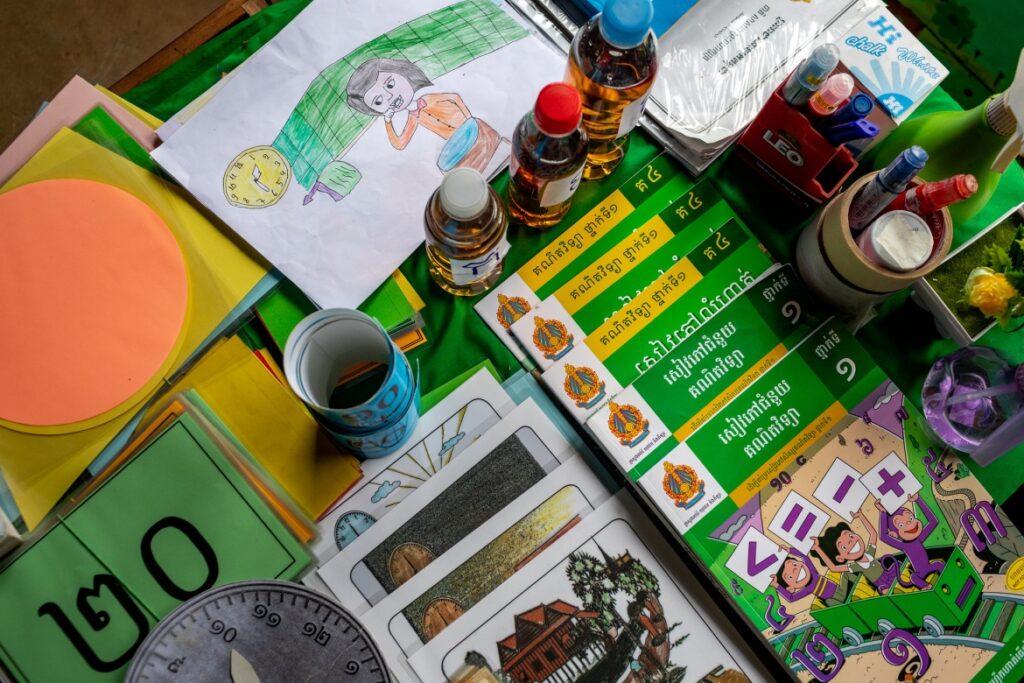
Languages of instruction to foster inclusion and understanding
Displaced learners, such as refugee children, may face a similar language barrier when they join a new host community which in turn may impact their social cohesion. Resettlement of displaced people in new communities within or outside their country of origin brings forth new challenges and opportunities for linguistic and cultural diversity.
Schools and teachers in the host communities need effective, linguistically inclusive approaches that use these displaced children’s home language and culture as stepping stones to support both their foundational literacy development and integration to the host community’s education system.
The Patani Malay-Thai Multilingual Education Program in Thailand is a strong example of how creating a space for improving multiple literacies can work toward fostering social cohesion, all the while allowing for multiple languages to have a place in the classroom.
The program was initially developed to address the low literacy rate of Patani Malay-speaking learners in Thai, the national language. Not only did the program improve learners’ literacy results by using their L1 (Patani Malay) before transitioning to their L2 (Thai), it also worked closely with communities to develop better perceptions around their own identities, involving them in decisions regarding their language, script and education.

But for this to come about in a sustainable manner, seeing through a systemic change in all areas of education is paramount.
While no country has yet to reach this goal, plenty of related pilot initiatives simultaneously focusing on different components of education have demonstrated positive results and potential in Asia and the Pacific.
Many such initiatives will be shared at the 7th International Conference on Language and Education, which will be held in Bangkok, Thailand on October 4-6, 2023. The conference will bring together policy makers, researchers, practitioners and development actors to share views, good practices and experiences, and to engage in dialogue on how communities and countries can work towards quality education for linguistically vulnerable and marginalized learners.
The conference will entail over 100 presentations and discussion panels covering themes such as foundational learning and literacy, translanguaging and multilingual pedagogies, materials for multilingual learners and multilingual education in crises and emergencies, among others.
These conference panels and presentations, together with the examples described above, can serve as strong, promising practices of L1-based literacy development to address learning poverty and current high illiteracy rates that disproportionately impact linguistically marginalized learners.
While illiterate adolescents and adults require immediate literacy interventions to enable their full access and participation in their communities, such transformation of building foundational literacy through education is also necessary if we hope to successfully foster sustainable and peaceful societies now and for the future, both in the Asia-Pacific and beyond.

